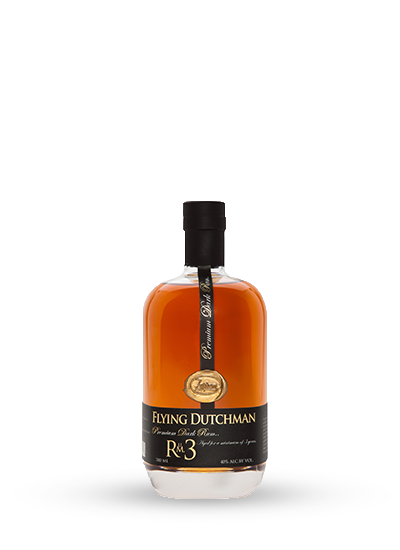
Flying Dutchman 3yo Rum
Zuidam Distillery’s Flying Dutchman 3yo Rum is a somewhat of a labour of (brotherly) love. Although Master Distiller Patrick van Zuidam prefers whisky, his brother Gilbert prefers Rum, and so in 2010 Patrick embarked on making a rum more akin to whisky production. This is acutely apparent in the exclusion of any column distillation, and the sole use of the copper pot still.
The first challenge was to find molasses of a high enough quality to produce the kind of Rum Patrick envisioned. The fermentation of molasses is challenging due to the low amount of vital minerals, amino acids and nitrogen, which the yeast needs to multiply. At best, low nitrogen leads to slow fermentations and at worst stuck fermentations. Some countries outside of the EU allow the addition of additives, most using ammonium di phosphate and in some cases using fruit such banana’s, sultanas, or dates. Within the EU distillers are not allowed to add anything to the fermentation besides molasses, yeast and water.
The molasses is sourced from Barbados due to its high quality, flavour profile, sugar content, minerals and availability.
The fermentation starts as a 10,000 litre batch using two strains of yeast, a Belgian yeast to create extra fruity flavours and a special rum yeast. The fermentation temperature is controlled and held constant at 22 Celsius and takes about 14 days. This results in a sweet and fruity smelling molasses beer at about 12% alcohol.
This beer is transferred into two 5000 copper pot stills where they are slowly distilled over 7 or 8 hours to maximise copper contact and to get good separation of wanted and unwanted flavours. The low spirit is then distilled twice more to bring the spirit up to 76% alcohol.
The distillate is then cut down to 60% alcohol and put into three types of barrels. 250 litre re-coopered Oloroso and Pedro Ximinez butts along with 200 litre virgin American oak casks are filled and left for three years.
The barrels are then blended, hand bottled and labelled as Flying Dutchman 3yo rum.